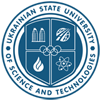REMOTE WORK FORMAT OF UNIVERSITY LIBRARIES. COMPARATIVE CHARACTERISTIC OF THE SOFTWARE FOR DIGITAL SCIENTIFIC COMMUNICATION
DOI:
https://doi.org/10.15802/unilib/2020_220379Keywords:
Hangouts, Zoom, Meet, Microsoft Teams, Skype, Viber, university libraryAbstract
Objective. Research of the experience of mass implementation of the remote format of work in Ukrainian university libraries during the period of isolation caused by the COVID-19 pandemic, analysis of work in various communication systems and programs. Evaluation of the possibility of the most optimal choice of software for remote working. Methods. We used the analysis and interpretation of the data of the work of six applications used in organizing remote work in the university library: Hangouts, Zoom, Meet, Microsoft Teams, Skype, and Viber. The combination of analytical and practical research methods made it possible to optimize the choice of software for the remote format of work of university libraries during the isolation period. Results. The study of the use efficiency of Hangouts, Zoom, Meet, Microsoft Teams, Skype, Viber, as well as a survey conducted during the pandemic of the opinions of employees of the scientific and technical library of the Dnipro National University of Railway Transport (DNURT) on the experience of remote work, made it possible to identify the main difficulties in organizing remote work of the library. The practice of applying and mastering application programs of digital communication revealed the potential of remote work of the university library and played the role of a catalyst in the development of a remote work format. Conclusions. To conduct a high-quality online webinar for free, you need to decide on a service that is time-tested and has a good reputation among users. It will be reliable, provide all the necessary functionality for the implementation of high-quality online content. It is important to read as many feedbacks as possible.
References
Besplatnye i bezopasnye zvonki i soobshcheniya po vsemu miru. Retrieved from https://www.viber.com/ (in Russian)
Funkciya "Provesti sobranie" dlya veselyh prazdnikov. Retrieved from https://www.skype.com/ (in Russian)
Google Hangouts. Retrieved from https://ru.wikipedia.org/wiki/Google_Hangouts (in Russian)
Kashkin, S. Y., Tishchenko, S. A., & Altukhov, A. V. (2020). Legal Regulation of the Artificial Intelligence Application for Combatting the Spread of COVID-19: Problems and Prospects based on World Experience. Lex Russica, 7, 105-114. doi: https://doi.org/10.17803/1729-5920.2020.164.7.105-114 (in Russian)
Kitishat, A. R., Al Omar, K. H., & Al Momani, M. A. K. (2020). The Covid-19 crisis and distance learning: E-teaching of language between reality and challenges. Asian ESP Journal, 16(5.1), 316-326. Retrieved from https://www.elejournals.com/asian-esp-journal/volume-16-issue-5-1-october-2020/#strongFULLJOURNALPDFstrong-1 (in English)
Kliushnyk, І., Kolesnykova, T., & Shapoval, О. (2019). Unified Digital Infrastructure of the Modern Scientific Library on the Basis of Web Technologies. Science and Transport Progress, 1(79), 64-80.doi: https://doi.org/10.15802/stp2019/160434 (in English)
Kolesnykova, T. O. (2018, October). “Khmary“ v naukovikh bіblіotekakh: realії ta perspektyvy. In Naukova bіblіoteka v «khmarakh»: realії ta perspektyvy: rehіon. nauk.-prakt. Semіnar. Dnіpro: DNUZT, Ukraine. 19.10.2018. [Presentation]. Retrieved from http://eadnurt.diit.edu.ua/jspui/handle/123456789/10826 (in Ukrainian)
Kolesnykova, T. O. (2020a). Organization of Remote Work for University Library Staff in Ukraine During Dramatic Uncertainties. [Preprint]. eaDNURT. 15.05.2020, 1-14. Retrieved from http://eadnurt.diit.edu.ua/jspui/handle/123456789/11914 (in Ukrainian)
Kolesnykova, T. (2020b, May 29). Yak orhanizuvaty viddalenu robotu kolektyvu universytetskoi biblioteky v umovakh nevyznachenosti? [Vebinar]. YouTube, 29.05.2020. Retrieved from https://www.youtube.com/watch?v=LxAZNHs3SyU (in Ukrainian)
Mpungose, C. B. (2020). Emergent transition from face-to-face to online learning in a south african university in the context of the coronavirus pandemic. Humanities and Social Sciences Communications, 7(1), 1-9. doi: https://doi.org/10.1057/s41599-020-00603-x (in English)
Neborsky, E. V., Boguslavsky, M. V., Ladyzhets, N. S., Naumova, T. A., … & Anisimov, A. E. (2020). Transition to distance learning under COVID-19 in assessments by professors. Perspectives of Science and Education, 46(4), 99-110. doi: https://doi.org/10.32744/pse.2020.4.6 (in English)
Ruiz-Guerrero, A. (2020). Our self-access experience in times of COVID. SiSal Journal, 11(3), 250-262. doi: https://doi.org/10.37237/110311 (in English)
Start a Google Meet video meeting. Retrieved from https://support.google.com/meet/answer/9302870?co=GENIE.Platform%3DDesktop&hl=ru (in Russian)
Videoobzor Microsoft Teams. Retrieved from https://www.onlineprojects.ru/tool/2395/ (in Russian)
Yudina, I., Bazyleva, E. A., Vakhrameeva, Z. V., & Fedotova, O. A. (2018). Scientists’ information needs and search for information (based on polling the researchers of Novosibirsk Center of the Russian Academy of Sciences Siberian Branch). Scientific and Technical Libraries, 11, 52-64. doi: https://doi.org/10.33186/1027-3689-2018-11-52-64 (in Russian)
Zoom Video Communications. Retrieved from https://ru.wikipedia.org/wiki/Zoom_Video_Communications (in Russian)
Published
How to Cite
Issue
Section
License
Copyright (c) 2021 UNIVERSITY LIBRARY AT A NEW STAGE OF SOCIAL COMMUNICATIONS DEVELOPMENT. CONFERENCE PROCEEDINGS

This work is licensed under a Creative Commons Attribution 4.0 International License.







